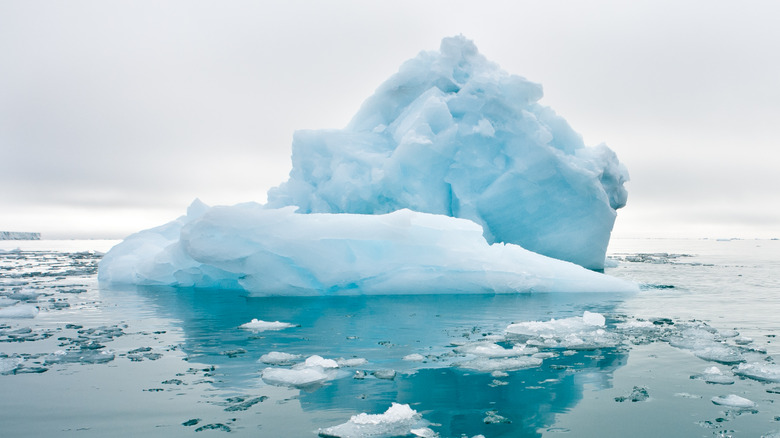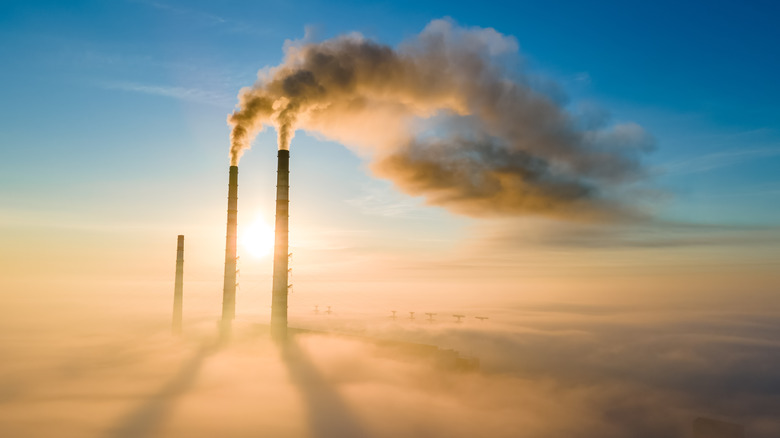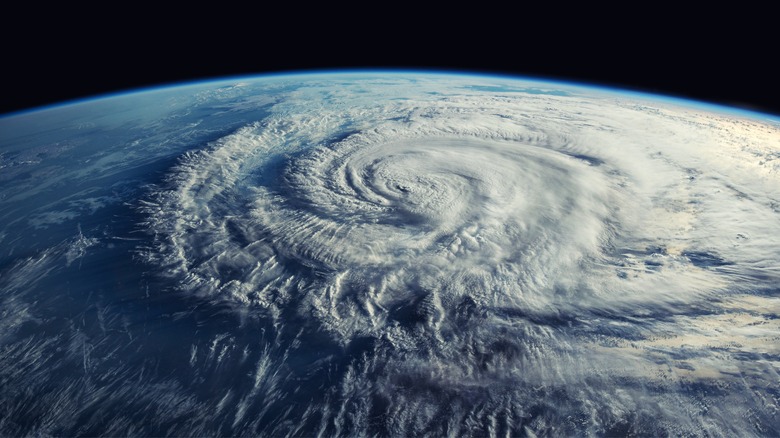The Big Myth About Global Warming You Need To Stop Believing
You've probably heard many myths about global warming and climate change over the years, including claims ranging from calling the problem a hoax to refusing to believe that human activity is fueling the problem and that greenhouse gases must be reduced. These popular beliefs, as faulty as they may be, continue to circulate among the public despite decades of scientific work.
On April 4, 2022, a UN IPCC report warned that the time is "now or never" when it comes to capping global warming to 1.5 degrees Celsius. The report written by hundreds of scientists from around the world presented new evidence on carbon emission impacts. UN Secretary-General António Guterres said, "This is not fiction or exaggeration. It is what science tells us will result from our current energy policies". Guterres added that governments and corporations are "adding fuel to the flames by continuing to invest in climate-choking industries".
As reported by The Hill in January 2019, former President Donald Trump used an extremely cold storm that hit the country as an opportunity to mock global warming on Twitter. "Large parts of the country are suffering from tremendous amounts of snow and near record-setting cold. Wouldn't be bad to have a little of that good old-fashioned Global Warming right now!" former President Trump stated. The tweet became a symbol of how lobby groups, fossil fuel industries, and high-profile politicians use their positions to spread global warning misinformation to the masses.
Common global warming myth misleads the public
To debunk the myth that cold weather means there's no global warming, Phys.org explains the difference between weather and climate. The term weather is used to describe seasonal variations and atmospheric events of short duration — for example, a drought in the summertime, a snowstorm in the winter, or a hurricane during hurricane season. On the other hand, climate is a term scientists use to refer to weather variations over long periods of time. The confusion arises because the general public does not make this distinction between weather and climate.
NASA's Global Climate Change reveals that historical temperatures on our planet have been rising steadily since 1880, with highs and lows, but peaking non-stop since the 1920s and the industrial revolution. NASA says it is a fact that the Earth's surface continues to grow warm. Global temperatures in recent years have reached an all-time historical high. Nineteen of the top 10 hottest years in history have happened since the year 2000.
The ups and downs in global temperatures do not affect the overall rising tendency as the world heats up. ICPP warns that not limiting temperature rises by 1.5 degrees Celsius will have catastrophic consequences with environmental and humanitarian crises already happening around the world linked to global warming.
What's the difference between global warming and climate change?
Again, scientists use a wide range of terms that have specific meanings, and they may be different than the definitions used by the general public. In this sense, "global warming" refers to the rising temperatures of the surface of our planet caused by human-driven emissions (via NASA). The term was coined in 1975 by geochemist Wallace Broecker of Columbia University's Lamont-Doherty Geological Observatory in a study published in "Science."
On the other hand, the term "climate change" is used by the scientific community to address other issues beyond rising surface temperatures. Humans have had a major impact on the environment, fueling many different problems that include extreme weather, increasing rates of natural disasters like wildfires, rising sea levels, extreme drought, loss of wildlife and biodiversity, loss of corals, ocean acidification, watershed contamination, and more — and the term climate change covers them all.
In 2014, Yale conducted a study that revealed the terms climate change and global warming had different meanings for the American people. The Guardian reported that the study revealed just how difficult climate communications are despite the urgency and seriousness of the issue. Such language and differences in interpretation often create conflict between those who "believe" in the science and the skeptics.


